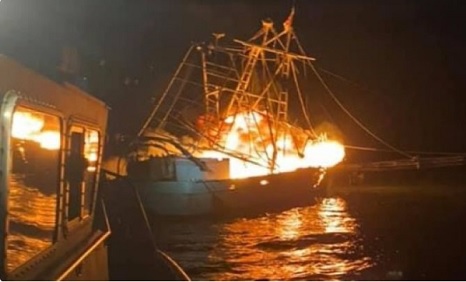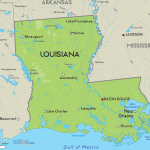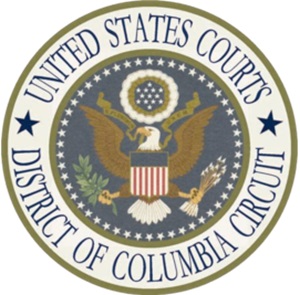 A U.S. appeals court on Monday appeared open to upholding a federal rule requiring commercial fishermen to fund a program to monitor for overfishing of herring off New England’s coast even after the U.S. Supreme Court in that same case issued a landmark ruling curbing agencies’ regulatory power. A three-judge panel of the U.S. Court of Appeals for the District of Columbia Circuit, during oral arguments, weighed the impact of the U.S. Supreme Court’s June decision, opens new tab to scrap a 40-year-old legal doctrine that had required courts to defer to agencies’ interpretations of ambiguous laws they administer. The 6-3 conservative majority U.S. Supreme Court nixed the doctrine, known as “Chevron deference,” after taking up an appeal by several commercial fishing companies of the D.C. Circuit panel’s 2-1 ruling in August 2022, opens new tab that had relied on the doctrine to uphold the fishing rule. more, >>CLICK TO READ<< 07:03
A U.S. appeals court on Monday appeared open to upholding a federal rule requiring commercial fishermen to fund a program to monitor for overfishing of herring off New England’s coast even after the U.S. Supreme Court in that same case issued a landmark ruling curbing agencies’ regulatory power. A three-judge panel of the U.S. Court of Appeals for the District of Columbia Circuit, during oral arguments, weighed the impact of the U.S. Supreme Court’s June decision, opens new tab to scrap a 40-year-old legal doctrine that had required courts to defer to agencies’ interpretations of ambiguous laws they administer. The 6-3 conservative majority U.S. Supreme Court nixed the doctrine, known as “Chevron deference,” after taking up an appeal by several commercial fishing companies of the D.C. Circuit panel’s 2-1 ruling in August 2022, opens new tab that had relied on the doctrine to uphold the fishing rule. more, >>CLICK TO READ<< 07:03Tag Archives: Supreme Court
Court open to upholding US fishing monitor rule even without ‘Chevron’ doctrine
 A U.S. appeals court on Monday appeared open to upholding a federal rule requiring commercial fishermen to fund a program to monitor for overfishing of herring off New England’s coast even after the U.S. Supreme Court in that same case issued a landmark ruling curbing agencies’ regulatory power. A three-judge panel of the U.S. Court of Appeals for the District of Columbia Circuit, during oral arguments, weighed the impact of the U.S. Supreme Court’s June decision, opens new tab to scrap a 40-year-old legal doctrine that had required courts to defer to agencies’ interpretations of ambiguous laws they administer. The 6-3 conservative majority U.S. Supreme Court nixed the doctrine, known as “Chevron deference,” after taking up an appeal by several commercial fishing companies of the D.C. Circuit panel’s 2-1 ruling in August 2022, opens new tab that had relied on the doctrine to uphold the fishing rule. more, >>CLICK TO READ<< 07:03
A U.S. appeals court on Monday appeared open to upholding a federal rule requiring commercial fishermen to fund a program to monitor for overfishing of herring off New England’s coast even after the U.S. Supreme Court in that same case issued a landmark ruling curbing agencies’ regulatory power. A three-judge panel of the U.S. Court of Appeals for the District of Columbia Circuit, during oral arguments, weighed the impact of the U.S. Supreme Court’s June decision, opens new tab to scrap a 40-year-old legal doctrine that had required courts to defer to agencies’ interpretations of ambiguous laws they administer. The 6-3 conservative majority U.S. Supreme Court nixed the doctrine, known as “Chevron deference,” after taking up an appeal by several commercial fishing companies of the D.C. Circuit panel’s 2-1 ruling in August 2022, opens new tab that had relied on the doctrine to uphold the fishing rule. more, >>CLICK TO READ<< 07:03N.S. judge upholds fisheries minister’s right to impose licence moratorium
 A Supreme Court of Nova Scotia judge has rejected an attempt by a Meteghan lobster processor to have the courts overturn a decision made or upheld by three fisheries ministers in Nova Scotia Lobster Hub Inc. first applied for a fish buyers and processors licence in February 2021. The company wants to process snow crab in addition to lobster at its processing plant. The Department of Fisheries and Aquaculture rejected the application, citing a moratorium placed on those licences unless they were tied to an aquaculture operation or secondary processing. The freeze has been in place since 2018 while the department reviews its licensing policy. The company appealed but Liberal fisheries minister Keith Colwell rejected it about a month before the PCs took power in 2021. The company tried to lobby Premier Tim Houston about a year later, expressing concern about Colwell’s reasoning. more, >>CLICK TO READ<< 12:35
A Supreme Court of Nova Scotia judge has rejected an attempt by a Meteghan lobster processor to have the courts overturn a decision made or upheld by three fisheries ministers in Nova Scotia Lobster Hub Inc. first applied for a fish buyers and processors licence in February 2021. The company wants to process snow crab in addition to lobster at its processing plant. The Department of Fisheries and Aquaculture rejected the application, citing a moratorium placed on those licences unless they were tied to an aquaculture operation or secondary processing. The freeze has been in place since 2018 while the department reviews its licensing policy. The company appealed but Liberal fisheries minister Keith Colwell rejected it about a month before the PCs took power in 2021. The company tried to lobby Premier Tim Houston about a year later, expressing concern about Colwell’s reasoning. more, >>CLICK TO READ<< 12:35
Opinion – Justice Gorsuch’s book of fish tales
 Supreme Court Justice Neil M. Gorsuch worries about big government. About agencies that overreach and infringe the rights of unwary and unsophisticated individuals. About using the overwhelming force of criminal law to bludgeon relatively minor wrongdoers. About the federal government supplanting the power of state and local governments that are closer to the needs of their citizens. If “Over Ruled” has a hero and heroine, they are John and Sandra Yates, a Florida couple whose story is threaded through its pages. Chapter 1 opens with the harrowing tale of Sandra Yates doing laundry one morning in 2010 when “seven agents in bulletproof vests, hands primed on holstered guns,” approached her Anna Maria Island bungalow. more, >>CLICK TO READ<< 08:54
Supreme Court Justice Neil M. Gorsuch worries about big government. About agencies that overreach and infringe the rights of unwary and unsophisticated individuals. About using the overwhelming force of criminal law to bludgeon relatively minor wrongdoers. About the federal government supplanting the power of state and local governments that are closer to the needs of their citizens. If “Over Ruled” has a hero and heroine, they are John and Sandra Yates, a Florida couple whose story is threaded through its pages. Chapter 1 opens with the harrowing tale of Sandra Yates doing laundry one morning in 2010 when “seven agents in bulletproof vests, hands primed on holstered guns,” approached her Anna Maria Island bungalow. more, >>CLICK TO READ<< 08:54

An Optimist’s view: Death of the Chevron Deference
My name is David Goethel. I am a 55 year plus commercial fisherman, research biologist and former fishery manager. As author of Endangered Species/Chronicles of A new England Fisherman I discuss these topics and a lawsuit I filed in 2015 with the legal group Cause of Action over the legal concept known as Chevron Deference. Most people believe Congress writes laws, the Executive Branch carries out those laws and the Judicial Branch interprets and clarifies whether aspects of those laws are Constitutional and correctly applied. It turns out under a doctrine called “Chevron Deference” the regulatory bureaucracy can deem a law unclear or ambiguous and create any regulation the agency decides it needs to carry out its bureaucratic function. Until this past Friday, the courts gave deference to the regulators as the “recognized experts” even though no proof is required and no test for ambiguity is applied. The Supreme Court overturned Chevron Friday saying they had “placed a tombstone on its grave”. Fishermen, including me, had sued saying that unelected regulators should not have this vast power over our lives. more, >>CLICK TO READ<< 20:18
Neil Gorsuch Cheers Supreme Court Placing ‘Tombstone’ on 40-Year Precedent
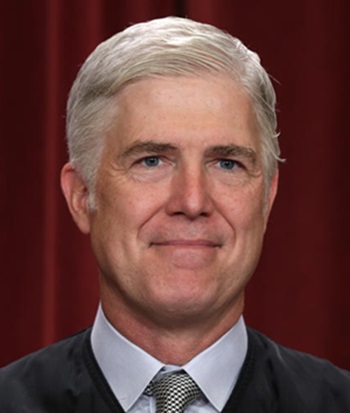 In Friday’s 6-3 ruling in Loper Bright Enterprises v. Raimondo, the justices wiped out 40 years of administrative law precedent in a move that will restrain federal agency powers. The court’s decision overturned the Chevron deference established in the 1984 case Chevron v. Natural Resources Defense Council. The majority, led by Chief Justice John Roberts and joined by the court’s other conservative justices, held that “courts may not defer to an agency interpretation of the law simply because a statute is ambiguous,” overturning Chevon deference. The court’s three liberal justices dissented. The majority, led by Chief Justice John Roberts and joined by the court’s other conservative justices, held that “courts may not defer to an agency interpretation of the law simply because a statute is ambiguous,” overturning Chevon deference. The court’s three liberal justices dissented. In Gorsuch’s concurring opinion, he wrote: “Today, the Court places a tombstone on Chevron no one can miss. In doing so, the Court returns judges to interpretive rules that have guided federal courts since the Nation’s founding.” more, >>CLICK TO READ<< 15:49
In Friday’s 6-3 ruling in Loper Bright Enterprises v. Raimondo, the justices wiped out 40 years of administrative law precedent in a move that will restrain federal agency powers. The court’s decision overturned the Chevron deference established in the 1984 case Chevron v. Natural Resources Defense Council. The majority, led by Chief Justice John Roberts and joined by the court’s other conservative justices, held that “courts may not defer to an agency interpretation of the law simply because a statute is ambiguous,” overturning Chevon deference. The court’s three liberal justices dissented. The majority, led by Chief Justice John Roberts and joined by the court’s other conservative justices, held that “courts may not defer to an agency interpretation of the law simply because a statute is ambiguous,” overturning Chevon deference. The court’s three liberal justices dissented. In Gorsuch’s concurring opinion, he wrote: “Today, the Court places a tombstone on Chevron no one can miss. In doing so, the Court returns judges to interpretive rules that have guided federal courts since the Nation’s founding.” more, >>CLICK TO READ<< 15:49
The Plaintiffs in the Supreme Court’s Big Chevron Case Moonlight as Anti–Offshore Wind Activists
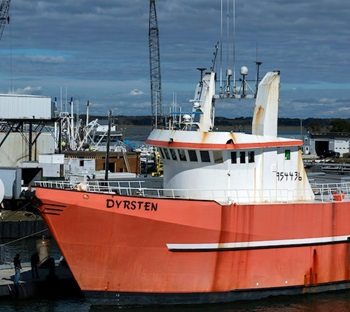 William Bright, Wayne Reichle, and Stefan Axelsson have a lot in common. They live in Southern New Jersey and run commercial fishing operations whose catch includes Atlantic herring, silvery little bottom-dwellers that feed on krill and fish larvae. They are plaintiffs in a Supreme Court case that could soon kneecap federal agencies’ ability to write and enforce regulations. And for the past few years, they’ve had a common adversary: offshore wind developers. Plaintiffs in one of the most closely watched cases this term participated in efforts to block two major renewables projects off the coast of New Jersey, Ocean Wind 1 and 2. The campaign against Ocean Wind 1 and 2 was aided by a network of conservative groups and corporate backers, who rejoiced when Danish energy firm Ørsted canceled both projects in November. Now, when the Supreme Court rules on Chevron this spring, these groups may have a much bigger win to celebrate. more, >>click to read<< 06:53
William Bright, Wayne Reichle, and Stefan Axelsson have a lot in common. They live in Southern New Jersey and run commercial fishing operations whose catch includes Atlantic herring, silvery little bottom-dwellers that feed on krill and fish larvae. They are plaintiffs in a Supreme Court case that could soon kneecap federal agencies’ ability to write and enforce regulations. And for the past few years, they’ve had a common adversary: offshore wind developers. Plaintiffs in one of the most closely watched cases this term participated in efforts to block two major renewables projects off the coast of New Jersey, Ocean Wind 1 and 2. The campaign against Ocean Wind 1 and 2 was aided by a network of conservative groups and corporate backers, who rejoiced when Danish energy firm Ørsted canceled both projects in November. Now, when the Supreme Court rules on Chevron this spring, these groups may have a much bigger win to celebrate. more, >>click to read<< 06:53
How a Supreme Court case involving herring fishermen affects the Little Sisters of the Poor
 A Supreme Court case being argued this week could have significant implications for a decade-long religious liberty battle fought by the Little Sisters of the Poor. The Supreme Court will hear oral arguments this week in Loper Bright Enterprises, Inc. v. Gina Raimondo, a case challenging the authority of the federal administrative state to dictate certain rules and regulations related to federal laws. Okay, so how are the Little Sisters involved? Though the involvement of a group of Catholic religious would seem unlikely in a case such as this, the Little Sisters of the Poor are participants in the Loper case, with the nuns having filed a friend of the court brief last year in support of the fishermen. more, >>click to read<< 12:46
A Supreme Court case being argued this week could have significant implications for a decade-long religious liberty battle fought by the Little Sisters of the Poor. The Supreme Court will hear oral arguments this week in Loper Bright Enterprises, Inc. v. Gina Raimondo, a case challenging the authority of the federal administrative state to dictate certain rules and regulations related to federal laws. Okay, so how are the Little Sisters involved? Though the involvement of a group of Catholic religious would seem unlikely in a case such as this, the Little Sisters of the Poor are participants in the Loper case, with the nuns having filed a friend of the court brief last year in support of the fishermen. more, >>click to read<< 12:46
A group of herring fishermen may put a hook in the Biden Administration’s power
 Even far out on the open water, where Bill Bright navigates his 140-foot fishing trawler in search of the Atlantic herring that school below the surface, the federal government always feels startlingly within reach. Bright and other captains alert regulators before they push off. A reporting system pings the boat’s location throughout the day. And sometimes Bright must bring a government mandated federal observer on board whose job is to collect data about the catch and ensure the rules are followed. Bright doesn’t mind those regulations. But he and his fellow fishermen are adamantly opposed to a 2020 federal rule that requires them to pay the salary of the observers they bring aboard – adding $700 a day to their costs. ”But this is not politics to me. This is about what’s right. This is about what’s right for our fishery.” photos, more, >>click to read<< 11:01
Even far out on the open water, where Bill Bright navigates his 140-foot fishing trawler in search of the Atlantic herring that school below the surface, the federal government always feels startlingly within reach. Bright and other captains alert regulators before they push off. A reporting system pings the boat’s location throughout the day. And sometimes Bright must bring a government mandated federal observer on board whose job is to collect data about the catch and ensure the rules are followed. Bright doesn’t mind those regulations. But he and his fellow fishermen are adamantly opposed to a 2020 federal rule that requires them to pay the salary of the observers they bring aboard – adding $700 a day to their costs. ”But this is not politics to me. This is about what’s right. This is about what’s right for our fishery.” photos, more, >>click to read<< 11:01
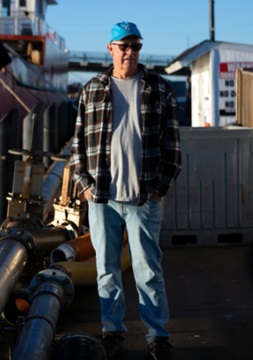
A Small Fish and an Uncollected Fee Add Up to Big-Government Challenge at the Supreme Court
The case could undercut the power of federal regulators on major issues including air pollution and securities fraud. It also exemplifies the way many of the high court’s biggest fights are born these days — driven less by the practical aims of the litigants than by the ideological vision of the interest groups behind the suits. The fight concerns a federal requirement that some herring boats host government-approved observers aboard their vessels and cover an estimated $710 daily cost. The fisherman say that would be an onerous burden on their family-owned businesses — so onerous they are suing even though the fee is on hold and might never kick in. “We have not had to pay. We’re just nervous about this hanging over our head,” said Bill Bright in an interview in Cape May, New Jersey, where he runs his two-vessel fishing business. “So we feel that we need to solve this problem now.” Photos, >>click to read<< 11:14
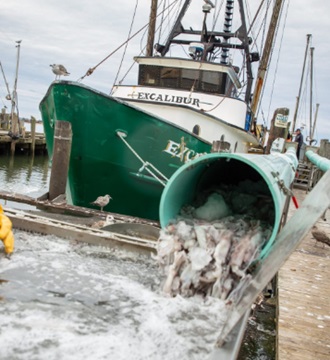
Landmark Legal Battle: Fishermen Challenge Regulatory Overreach Impacting Livelihoods
In a pivotal move, the Supreme Court has accepted a second challenge to the long-standing legal doctrine known as “Chevron deference.” This doctrine, born from a 1984 ruling, grants federal agencies substantial authority in formulating rules and regulations. The case, Relentless Inc. v U.S. Department of Commerce, represents a crucial juncture for Rhode Island fishermen who, along with those in the Loper Bright Enterprises v. Raimondo case, are fervently contesting a federal rule that mandates them to bear the financial burden of federal observers on their boats. >>click to read<< 12:23
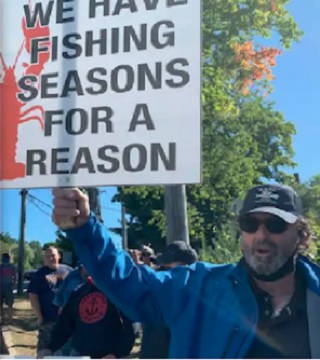
RUBENSTEIN: The endless Maritime lobster war
Nova Scotia has a series of historic treaties with the Mi’kmaq dating back to the 1720s, 150 years before any of the numbered treaties in the rest of Canada. These agreements are known as the Peace and Friendship Treaties and were designed to reduce warfare and to regulate trade between the indigenous and settler populations. While these treaties contained few monetary and no land transfer provisions, they guaranteed hunting, fishing and land-use rights for the descendants of the indigenous signatories. These Peace and Friendship Treaties remain in effect today but were regularly but improperly denied or ignored by the Crown during much of Nova Scotia’s past. Today, those ignoring the treaties and court rulings stemming from them are the Mi’kmaq themselves. >>click to read<< 10:27

When Nuts Write: ‘Chevron Deference’ Attacked By Pence’s Koch-Funded Front Groups Supporting Fishing Lobby
In April, we noticed fisherman Jerry Leeman was impressively adept at anti-offshore wind media relations work, and wondered if he was receiving assistance from professional disinformation operatives. Then last month, we spotted a tell suggesting Leeman was working with none other than Steve Milloy the template for tobacco shills turned climate deniers, to launch his new fishing lobby group. Now, we’ve spotted another clue that Leeman’s career change from the high seas to lobbying for the fishing industry has some big fish on the line. >click to read<, (if you can stomach it.) Lots of links. >click to read from Jerry Leeman< 17:11
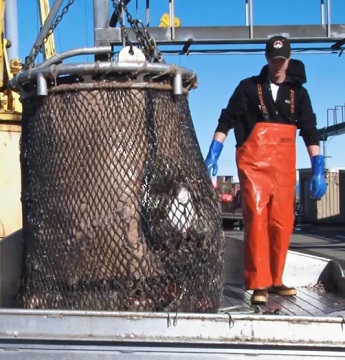
‘It’s Just Not a Fair Fight’: Supreme Court to Hear Case that Could End Bureaucratic Rule
“There’s going to be plenty of trips where that monitor will make more than myself or my crew,” said Stefan Axelsson, a commercial fisherman. He and other herring fishermen from Cape May, New Jersey sued over the rule and their case will be heard by the Supreme Court next term, where it will be argued by famed appellate lawyer Paul Clement. “When you have the federal government regulating small businesses it’s just not a fair fight,” Clement recently told The Hugh Hewitt Show. However, instead of just hearing the specifics of this case alone, justices have chosen to take on the bigger issue by reviewing the power of the entire federal bureaucracy. Specifically considering one of the most important, and powerful, principles in the world of bureaucratic rulemaking known as the “Chevron doctrine.” >click to read< 14:02
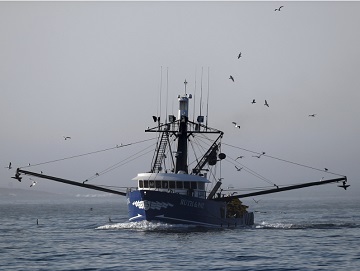
Courts threaten to sink federal fishery monitoring
NOAA suffered a major blow in February when a three-judge panel of the 5th U.S. Circuit Court of Appeals in Louisiana threw out a rule that would have required charter boats in the Gulf of Mexico to be equipped with electronic monitors to report fish catches. Fishermen complained that the devices would cost them as much as $3,000 per boat. And the agency may be poised for an even bigger setback from the Supreme Court. Justices last month said they would take up a case that could decide whether NOAA has the legal authority to force New England herring fishermen to hire third-party contractors to monitor their fishing at a cost of up to $700 per day. >click to read< 13:55
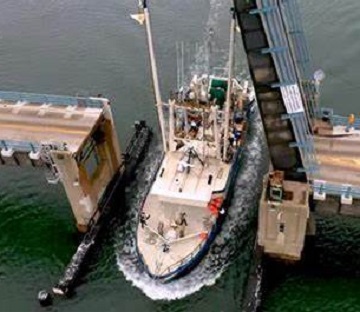
Cause of Action Institute: Supreme Court to Hear Fishermen’s Chevron Challenge
The justices will review Loper Bright v. Raimondo. The fishermen, represented by former Solicitor General Paul Clement and lawyers from Cause of Action Institute, petitioned the Court in November to overrule a funding scheme that would force them to hand over 20 percent of their pay to third-party at-sea monitors they must bring on their boats—a mandate that Congress never approved by statute. Amicus briefs in support of the fishermen’s case were filed by 38 organizations and individuals, including one signed by 18 state attorneys general. “The Supreme Court has an opportunity to correct one of the most consequential judicial errors in a generation. Video, lots of noteworthy links with lots of info. >click to read< 19:00

Fate of NJ Fishermen in the Hands of Supreme Court
New Jersey herring fishermen asked the Supreme Court in a final brief to rein in regulators that rely on judicial deference to circumvent the will of Congress. The fishermen are challenging the lawfulness of a regulation that could force them to hand over 20 percent of their pay to third-party at-sea monitors they must carry on their boats—a mandate that Congress never approved by statute and did not give the National Marine Fisheries Service (NMFS) the authority to require by regulation. The U.S. Solicitor General recently filed a brief with the Court urging the justices to ignore the checks and balances of the U.S. Constitution in order to preserve the controversial doctrine of Chevrondeference. >click to read the press release< 15:22

Supreme Court denies lobstermen’s bid to halt Gulf of Maine fishing restrictions
The Supreme Court on Friday denied a request by lobster fishers to halt environmental protections that restrict fishing in a large swath of the Gulf of Maine. The application, filed earlier this week by a lobster fishers’ union and two lobster fishing companies, was rejected without comment by Justice Stephen Breyer, who handles emergency matters arising from the region. >click to read< 13:13

Lobstermen ask Supreme Court to halt restrictions meant to protect whales
The protections in question restrict the use of lobster traps in nearly 1,000 square miles in the Gulf of Maine between October and January. They are intended to protect the North Atlantic right whale,,, In the emergency application, the union and fishing companies said the restrictions would curtail fishing by more than 100 of the state’s “largest and most productive” boats, many of which only fish in the restricted area. “These fishermen and their communities have no other means to make a living except by fishing in these waters during this specific time of year, and even the loss of one season will see their vessels repossessed and their gear obsolete due to changing regulations with no funds to update them,” the application states. >click to read< 13:16 Lobstering union petitions U.S. Supreme Court to overturn Gulf of Maine closure – The Maine Lobstering Union has filed a petition asking to plead its case before the U.S. Supreme Court in an effort to reopen the area, which is slated to be closed through January – and every subsequent October through January – in an effort to protect the critically endangered North Atlantic right whale. >click to read< 17:20
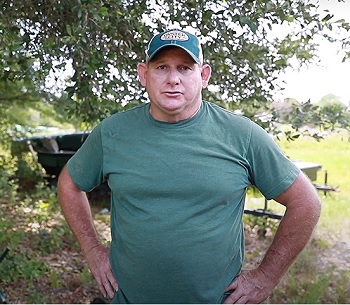
Supreme Court – Oystermen bemoan ‘disgraceful’ water wars decision
Shannon Hartsfield, a fourth-generation oysterman, fears debilitating drought in years to come after the Supreme Court yesterday found that Florida failed to show Georgia is cutting off south-flowing water. Hartsfield’s livelihood is in Apalachicola Bay, an estuary and lagoon along the Florida Panhandle that once hosted up to 400 bustling fishing boats. It is now closed to allow wild oyster reefs to regenerate after suffering through historically dry conditions in recent years that have slowed the inflows feeding the bay. Hartsfield, head of the Franklin County Seafood Workers Association, claims Georgia is also to blame for not allowing fresh water to flow down two rivers, past Atlanta’s suburbs and to the Gulf of Mexico. The Supreme Court disagreed. >click to read< 09:35
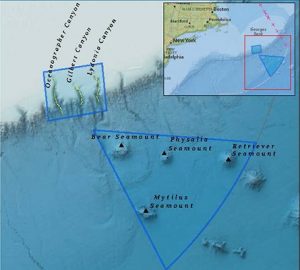
Supreme Court won’t hear fishermen’s case against Northeast Canyons and Seamounts National Marine Monument
The high court denied a request to take a look at the case. Chief Justice John Roberts wrote that the creation of a national monument was “of no small consequence,” but the petitioners did not meet the criteria to bring it before the Supreme Court. The fishing group is let down by the court’s decision, but also feels that Roberts’ statement is a signal for others to bring similar cases, and suggests the high court “will soon resurrect meaningful limits on the President’s monument-designation power.” >click to read< 08:10
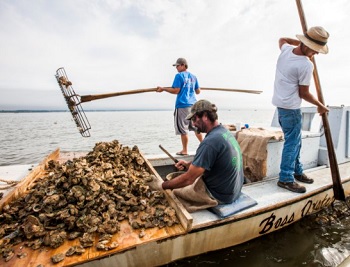
Florida to Supreme Court: Ga’s excessive water use killing bay’s oysters
In the early 1980s, Steve Rash would drive across the bridges that ring Florida’s Apalachicola Bay and see fishing vessels so crammed together on the water that a person could walk from boat to boat. There were hundreds of oystermen using traditional wooden hand tongs to harvest the estuary’s culinary jewel. Business was good. As recently as 2008, one in every 10 residents of Franklin County held an oyster license. Together, they harvested roughly 10% of the country’s wild oysters. But all of that came crashing down in 2013, when the oyster population collapsed and never recovered. >click to read< 12:23
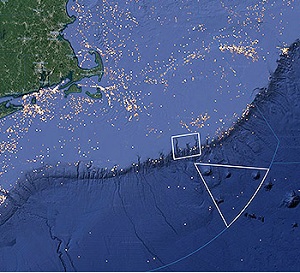
Northeast Canyons and Seamounts Marine National Monument showdown reaches high court
The Obama administration exceeded its authority in 2016 when it designated the Northeast Canyons and Seamounts Marine National Monument and cut off access to key fisheries, attorneys for the Massachusetts Lobstermen’s Association and other groups argued in their petition filed with the Supreme Court yesterday. A recent move by the Trump administration to preserve the monument but dissolve fishing restrictions has not erased the need for the high court to consider the case, the groups wrote. Those rollbacks are now subject to a separate lawsuit launched by environmental groups. >click to read< 12:28
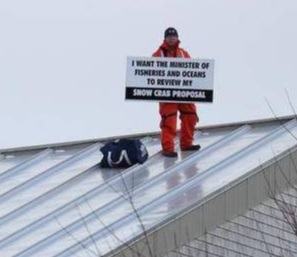
After years of protest, New Waterford man wins fishing quota case
New Waterford fisherman Paul Fraser has finally had his day in court and won. In a written decision released this week, Supreme Court Justice John Bodurtha ruled that Fraser is entitled to receive $264,294.98, plus interest, in compensation for the eight years his quota was used by another company along with $15,000 in punitive damages. “I am convinced after reviewing all the documentation from DFO and hearing testimony of the witnesses, that Fraser’s snow crab license was transferred to the defendant and fished for the defendant’s benefit since 2010,” concluded Bodurtha. “The defendant intentionally refused to pay Fraser for the use of his snow crab allocation from 2011 to 2018. >click to read< 20:12
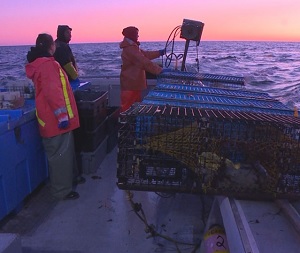
Two parts: 20 years ago the Supreme Court ruled on Mi’kmaq fishing rights, so what has changed?
Early on a warm morning in mid-August, Marilyn-Leigh Francis eyes the Coast Guard boat at the wharf in Yarmouth, Nova Scotia. Word around the wharf is that the DFO officers will be hauling up any lobster traps that aren’t tagged for the Mi’kmaw food fishery season that’s underway. For the last four years, Francis has harvested lobster, outside of the rules set by the DFO. No licence. No tags. She writes her name and Treaty 1752 on her buoys. Francis walks up to one of the DFO officers, introduces herself, and asks, “I was just wondering if you guys were seizing gear today?” The officer says he doesn’t know. But for the rest of summer and into the early fall, the DFO was busy seizing traps. 2 Videos, click to read and watch, >Part 1<, and >Part 2< 12:07

BIG WIN! Supreme Court dismisses FFAW-Unifor appeal of FISH-NL’s union status; ordered to pay legal costs
The province’s Supreme Court has dismissed an FFAW-Unifor appeal of FISH-NL’s status as a properly constituted union, and ordered the FFAW to pay court costs. “The FFAW has used every legal maneuver in the book to try and quash the FISH-NL movement and drown their own members in legal fees, but the highest court in the land has seen through it,” says Ryan Cleary, President of the Federation of Independent Sea Harvesters of Newfoundland and Labrador. “Coming the day before FISH-NL’s convention in Gander, the decision is a huge boost.” >click to read<16:55

The Age of Petty Tyrannies
“Whether the mask is labeled fascism, democracy, or dictatorship of the proletariat, our great adversary remains the apparatus—the bureaucracy, the police, the military. Not the one facing us across the frontier of the battle lines, which is not so much our enemy as our brothers’ enemy, but the one that calls itself our protector and makes us its slaves.,,,” We labor today under the weight of countless tyrannies, large and small, carried out in the name of the national good by an elite class of government officials who are largely insulated from the ill effects of their actions. We, the middling classes, are not so fortunate.,,, This is the mindset that tried to penalize a fisherman with 20 years’ jail time for throwing fish that were too small back into the water. John Yates, a commercial fisherman,,, >click to read<
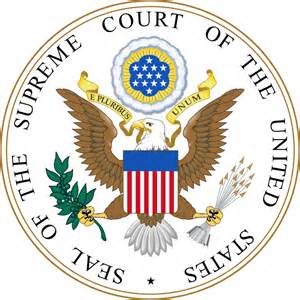
State of Washington v. United States: Supreme Court to tackle salmon case without Justice Kennedy
When the full Supreme Court resumes arguments in mid-April, the Court will be short by one Justice when it considers a long-running dispute about salmon fishing, Indian treaty rights, and culverts in the state of Washington. On March 19, the Clerk of the Supreme Court clerk Scott Harris told the parties in State of Washington v. United States that a routine check missed Justice Anthony Kennedy’s participation in an earlier judicial decision from 1985, when Kennedy was on the federal circuit bench, related to the current case. After learning about the situation, the court said Justice Kennedy declined to end his participation in the current case. With eight Justices on the bench for the April 18 arguments, Washington v. United States should get its fair share of attention. >click to read<
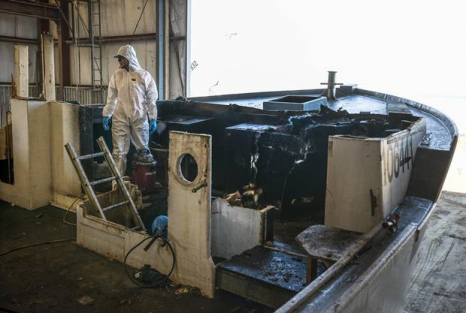
Lobster wars
Burned out fishing boats, thousands of pounds of dumped, dead lobsters and allegations of a booming black market for the popular crustacean have drawn federal investigators to Nova Scotia’s most lucrative fishing grounds in the lead-up to lobster season. Tensions have been running high in recent weeks along the small wharves in the communities that dot St. Mary’s Bay, a well-known breeding ground for lobsters during the summer. While conservation laws prevent lobster fishers from harvesting the shellfish during breeding season in order to safeguard stocks, stunned locals watched thousands of pounds of lobsters that appeared to be commercial loads pass over their docks though the summer months. click here to read the story 10:53
NOAA Fisheries rule should alarm taxpayers
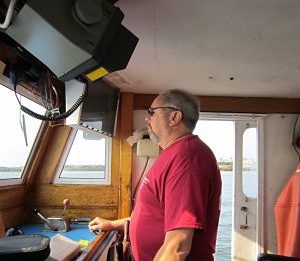 NOAA Fisheries has discovered a devious way to increase their budget without the checks and balances guaranteed by our forefathers, and the courts have let it stand. I have been involved in a lawsuit with NOAA Fisheries over who pays for at-sea monitors (ASM) for the last three years. These are basically our own personal state police men who ride along on the boat and watch and record everything fishermen do at sea. Fishermen have been forced to sign contracts with for-profit third-party companies that provide this service for $710 per day. Recently, the Supreme Court refused to hear our case, effectively ending our pursuit of justice. Readers should be concerned, not only because this job-killing regulation effects their ability to obtain local seafood, but also because the loss leaves in place a precedent that will allow regulatory agencies to tax citizens by passing regulations while bypassing Congress. click here to read the op-ed 08:56
NOAA Fisheries has discovered a devious way to increase their budget without the checks and balances guaranteed by our forefathers, and the courts have let it stand. I have been involved in a lawsuit with NOAA Fisheries over who pays for at-sea monitors (ASM) for the last three years. These are basically our own personal state police men who ride along on the boat and watch and record everything fishermen do at sea. Fishermen have been forced to sign contracts with for-profit third-party companies that provide this service for $710 per day. Recently, the Supreme Court refused to hear our case, effectively ending our pursuit of justice. Readers should be concerned, not only because this job-killing regulation effects their ability to obtain local seafood, but also because the loss leaves in place a precedent that will allow regulatory agencies to tax citizens by passing regulations while bypassing Congress. click here to read the op-ed 08:56
Groundfishermen: ‘It feels like we’re just forgotten’ – Fishermen who followed Goethel’s path through the federal courts said they were disappointed with the outcome. Goethel said he was “disillusioned” by the process. “Talk about feeling forgotten,” said Jamie Driscoll, a commercial fisherman from Kingston. “That’s how it feels. It feels like we’re just forgotten.” click here to read the op-ed
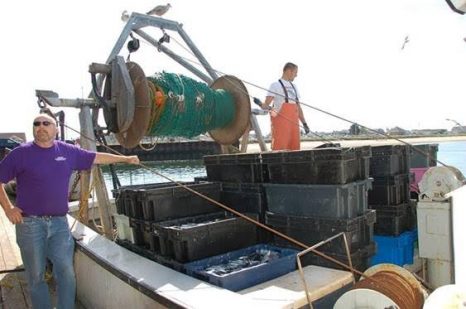
Why are fishermen guilty until proven innocent? A case against putting video cameras on every boat
As many of you may know, my husband filed a lawsuit against the National Marine Fisheries Service to stop them from requiring the fishermen to pay for the At-Sea monitors that the Fisheries Service requires ground fishermen to take on their boats. The cost is upwards of $700 a day, which is more than the small family owned fishing boats make here in New England. The Supreme Court decided not to hear their case which the lower courts had dismissed on a technicality because the suit was not filed within a 30 day time frame. Some people have suggested video monitoring as an alternative. I have addressed that in my comments below click here to read Ellen Goethels post 15:01


































